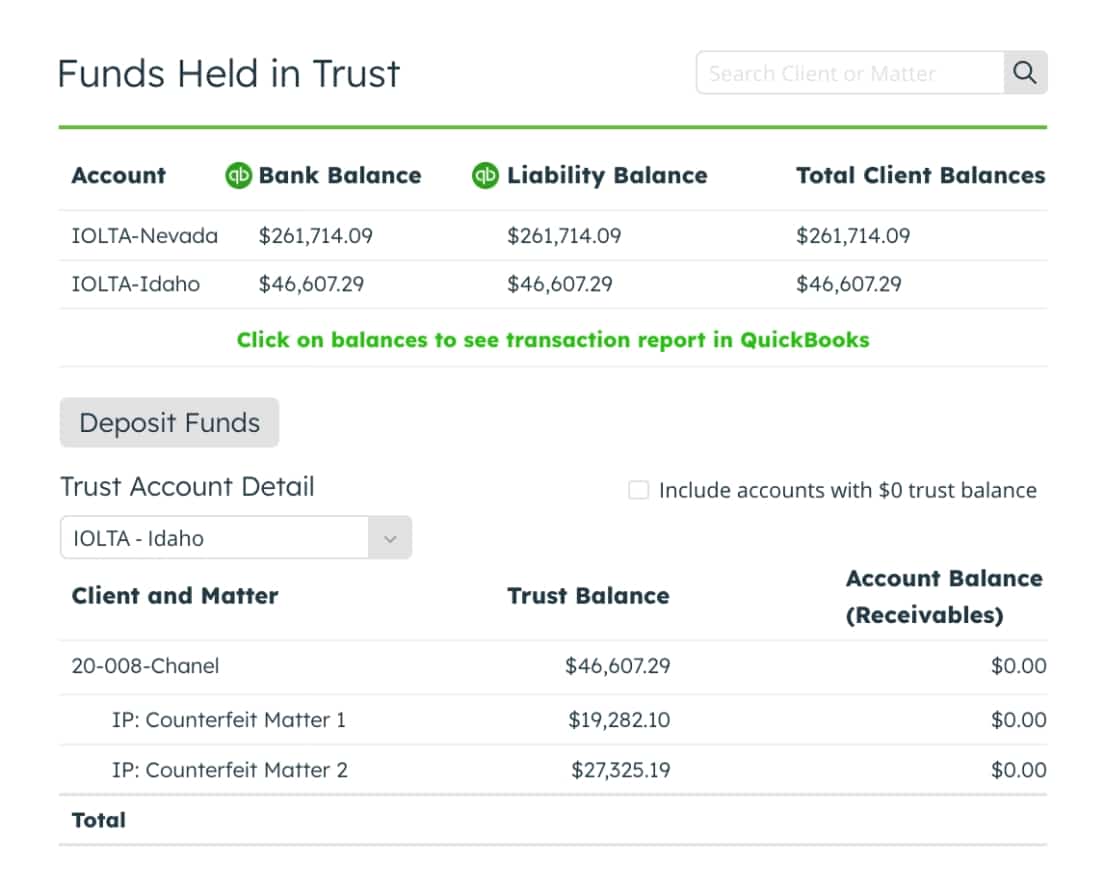
Have you found yourself overwhelmed – or even frustrated – with the seemingly endless number of options when it comes to legal billing software for your law firm?
Do you get tired of flipping back and forth between software sites, trying to determine which type has the most features that line up with your needs?
Are you worried that you’re going to finally sign on the dotted line, only to realize that what you thought you needed, and what you actually need, are two different things?
And finally…do you want to get back to doing what you do best? (Which, by the way, is not trying to choose billing software!)
Given the fact that I work for a legal billing software company, knowing what your needs are is my business.
In fact, it’s the only thing that is going to set my business apart from all those others.
Critics may argue that I am incapable of being biased enough to offer any sort of insight into the benefits and drawbacks of various types of legal billing software.
But I believe it’s just the opposite.
My job is to help create a product that will save a law firm time and money, while also increasing their staff’s productivity and satisfaction and earning their client’s trust.
Therefore, it is my job to continuously analyze the market and determine if what LeanLaw is putting out into the law field is the best it can be.

In the next series of blog posts, I will compare LeanLaw’s legal billing software to some of the law industry’s biggest hitters and give you (and myself!) a better idea of where LeanLaw is excelling as well as where we may be missing the mark.
Schedule a demo
Ready to dive in?
Let’s start this first round with an industry favorite: LeanLaw versus Timesolv legal billing software.

LeanLaw and Timesolv Legal 101: Who are Our Players?
We will begin by getting to know a bit more about both of these legal billing software companies that have made a big name for themselves in a relatively short amount of time.
One of the biggest similarities between LeanLaw and Timesolv Legal is that they are both designed to be an alternative to the traditional all-in-one legal practice management software systems that were popular in the past.

What do you mean by “all-in-one legal practice management software?”
When legal software was first being introduced, law firms didn’t have many options when it came to wanting to manage all their matter management online.
That meant that large, all-in-one legal practice software systems were often purchased to replace the yellow pad, allowing law firms to bring the majority of their operations online.
These all-in-one practice management software systems promised to be able to manage everything a law firm needed: its document management system, its legal time tracking and billing, its expense tracking, and even its trust account system.
Though they would have to pay hefty monthly and annual subscriptions for these services, law firms were able to have most of their operational needs housed in one software platform, putting an end to manual files and endless paperwork.
But, as is often the case, technology continued to advance and the need for these all-in-one practice management software systems soon became obsolete.
And this is where legal billing software like LeanLaw and Timesolv Legal came into play.

LeanLaw and Timesolv Legal Billing Software: The Alternative (and Better!) Solution
Traditional all-in-one practice management software systems may have been a godsend to law practices in the past, but today this is no longer the case.
Technology has continued to advance, and the tech industry has continued to improve upon what is already available, all while constantly introducing us to new apps and tools that help make our lives easier and more efficient.
This means that alternative programs such as legal billing software systems like LeanLaw and Timesolv can be a great option for firms looking for more flexibility and specific functionality than what has traditionally been available up until quite recently.
With these types of legal billing software, law firms have the ability to choose only the features they need and can easily integrate with other software systems they are already using.
Not only that, but systems like LeanLaw and Timesolv legal billing software systems often provide more specialized support and training for their users…specialized accounting and legal billing support that those big systems just can’t maintain, given everything they are trying to manage.
This type of support will ensure that law firms have a better understanding of the legal billing software and can use it more effectively.
This kind of personalized support can also be especially important for small firms or solo practitioners who may not have the resources or personnel to dedicate to extensive training on a larger all-in-one practice management software system.
And finally, it is no mystery or surprise that LeanLaw and Timesolv legal billing pricing is going to most likely be more cost-effective, with lower subscription fees and fewer hidden costs than traditional all-in-one solutions.
In the end, the decision between a traditional all-in-one practice management software system and a legal billing software system like LeanLaw or Timesolv legal billing will depend on the specific needs of each law firm.
However, for firms looking for more flexibility, customization, and cost-effectiveness, LeanLaw and Timesolv legal billing software systems can be great alternatives to what is no longer the industry standard.
LeanLaw and Timesolv Legal Billing Software: The Showdown Between the Two
We’ve looked at the biggest reason why both LeanLaw and Timesolv legal billing software may very well work better for your law firm than the traditional (and now unnecessary) all-in-one practice management systems.
But how do we determine which is better?

As I mentioned earlier, some may claim that I have no right to conduct LeanLaw or Timesolv legal billing reviews, since I am most likely biased.
But I know what LeanLaw is good at, and I know the areas that a law firm may benefit from a different legal billing software company.
And I also know that there is no “one size fits all” — particularly when it comes to the ever-evolving world of technology.
Before you make any other decision about your legal billing software, decide that you are going to go with a company that understands that.
That said, let’s dive into some of the biggest similarities and differences between LeanLaw and Timesolv legal billing software.

What Makes Both LeanLaw and Timesolv Legal Billing Software Great Alternatives to All-in-One Legal Software Platforms?
The truth is, both LeanLaw and Timesolv legal billing software have a decent number of features that are ideal for a law firm and its clients.
One of the main similarities between LeanLaw and TimeSolv legal billing is that they both focus primarily on financials.
Both cloud-based software providers were originally developed to help law firms with legal time tracking and billing, expense tracking, tracking billable hours and generating invoices, and securing payments.
Here are some of the excellent features that both LeanLaw and Timesolv Legal offer:
- a mobile app that is available on iOS and Android
- time entry insights (Timekeeper productivity)
- batch invoicing (which helps a firm get paid faster)
- LEDES billing
- electronic billing and online payments
- the ability to track and maintain multiple trust accounts and trust reports while also keeping them in compliance as required
Okay…So, What Makes LeanLaw and Timesolv Legal Different?
Like I said earlier, both LeanLaw and Timesolv Legal can be great tools for a law firm that wants to have high efficiency, accuracy, and productivity when it comes to their accounting and legal billing practices.
But, though they certainly have some similarities, there is no doubt that there are differences between LeanLaw and Timesolv legal billing software systems as well.
The biggest difference between these two software systems is that LeanLaw offers a true continuous sync with QuickBooks Online.
This means that all of the financial data that is integral to the operation of your firm is automatically updated in real time.
Schedule a demo
With LeanLaw, you’ll never have to worry about data discrepancies — and you’ll never have to remember to sync because you are always in sync.
In contrast, Timesolv connects to QuickBooks via an older API, which means the applications’ data can’t truly be in sync at all times.
Having a legal billing software system that doesn’t always automatically sync means that your attorneys and staff are going to have to spend extra time on technical steps that are not necessary.
Not only that, but these steps can prove to be detrimental, particularly when it comes to potential errors as well as just the constant worry that something was missed or not synched properly.

Are You Ready to Learn More?
Whether you decide to integrate a legal billing software system like LeanLaw or Timesolv is ultimately your decision.
Every law firm is different and will often have needs and priorities that are unique to their particular practice.
If you are still unsure whether LeanLaw and Timesolv legal billing software, or another solution like Juris Legal software, is the right option for your firm, why not give LeanLaw’s free demo a try? Our team of experts can walk you through any questions or concerns you may have…and maybe answer some you didn’t even think of!
LeanLaw: an excellent legal billing alternative for your law practice.
Let us show you why.





